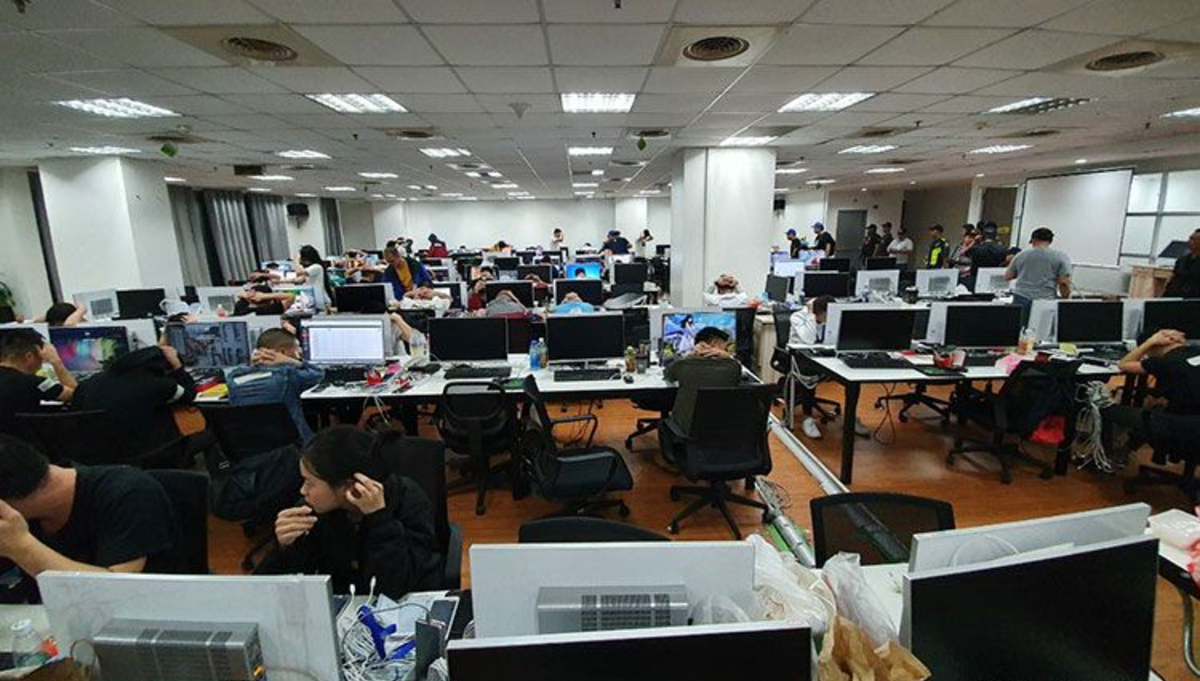Philippines Offshore Gaming Tax Revenue Increases Despite Fewer Operators
Posted on: January 27, 2021, 09:19h.
Last updated on: January 27, 2021, 11:57h.
Philippines Offshore Gaming Operators (POGO) paid the government more taxes in 2020 than they did in each of the previous two years.

The Philippines Bureau of Internal Revenue revealed today that it received PHP7.18 billion (US$149.3 million) from licensed internet gaming firms last year. That’s an 11.7 percent premium on 2019’s tax receipts of $133.7 million.
POGO tax payments in 2020 are a staggering 204 percent surge in 2018 when the gaming operators paid $49.1 million in taxes.
Philippines President Rodrigo Duterte was once a staunch opponent to widespread gambling. But the controversial leader has since embraced gambling that does not prey on Filipino people.
China has repeatedly asked Duterte to better limit POGOs, as the online platforms primarily target gamblers in the People’s Republic. Duterte has refused, saying the sector provides too great of a tax benefit to the Philippines.
“They [China] cannot dictate to us,” said Philippines Ambassador to China Jose Santiago Sta. Romana.
Fewer Operators, More Taxes
While the Philippines has refused to shut down its POGO industry, the country’s gaming regulator has limited the number of licensed operators. The Philippine Amusement and Gaming Corporation (PAGCOR) stopped issuing new offshore gaming permits in 2019 on Duterte’s directive.
COVID-19 and China’s threatening its citizens who travel to the Philippines to work in POGO service centers resulted in dozens of operators closing last year. Once numbering more than 130 licensed POGO providers, today that tally is down to 51.
The pandemic has devastated the Filipino economy. And Duterte has turned to POGOs to help offset some of the country’s tax losses. Last fall, PAGCOR imposed a new five percent tax on POGO gross gaming revenues. That’s in addition to the previous two percent tax levied on offshore operations.
The Philippines also benefits from foreign nationals working in the POGO businesses. Any foreign employee who earns PHP600,000 (US$12,247) in a year is subjected to a 25 percent personal income tax.
The overall tax revenue gain is a result of the increased share required by the government. But the operators that did remain benefited from COVID-19 halting leisure and business travel. The result was tens of millions of Chinese people staying home for much of 2020 — and some gambling online through a POGO.
Integrated Resorts Move Online
Three of the four integrated resort casinos in Manila obtained internet gaming permits from PAGCOR last month. The Philippines created the new gaming licenses because of reduced visitors arriving at the multibillion-dollar properties during the pandemic.
City of Dreams, Okada, and Solaire all received so-called Philippine Inland Gaming Operator (PIGO) concessions. But unlike POGOs, the licenses are only to cater to verified high rollers who had frequented the casino resorts in the past.
Qualifying gamblers must already be in each casino’s player database and tracking system.
Revenue from PIGO operations is heavily taxed at an effective rate of 30 percent. PAGCOR boss Andrea Domingo said PIGOs are a win-win. “It will be good to collect revenues and stop illegal gambling,” she stated.
Related News Articles
Chinese Government Could Be Behind Spy Malware Targeting Online Casinos
India Uncovers Hundreds Illegal Chinese Gambling Apps
Most Popular
FTC: Casino Resort Fees Must Be Included in Upfront Hotel Rates
Genovese Capo Sentenced for Illegal Gambling on Long Island
NBA Referees Expose Sports Betting Abuse Following Steve Kerr Meltdown
UPDATE: Former Resorts World & MGM Grand Prez Loses Gaming License
Most Commented
-
UPDATE: Whiskey Pete’s Casino Near Las Vegas Closes
— December 20, 2024 — 30 Comments -
Caesars Virginia in Danville Now Accepting Hotel Room Reservations
— November 27, 2024 — 9 Comments -
UPDATE: Former Resorts World & MGM Grand Prez Loses Gaming License
— December 19, 2024 — 8 Comments -
FTC: Casino Resort Fees Must Be Included in Upfront Hotel Rates
— December 17, 2024 — 7 Comments
















Last Comment ( 1 )
No comment